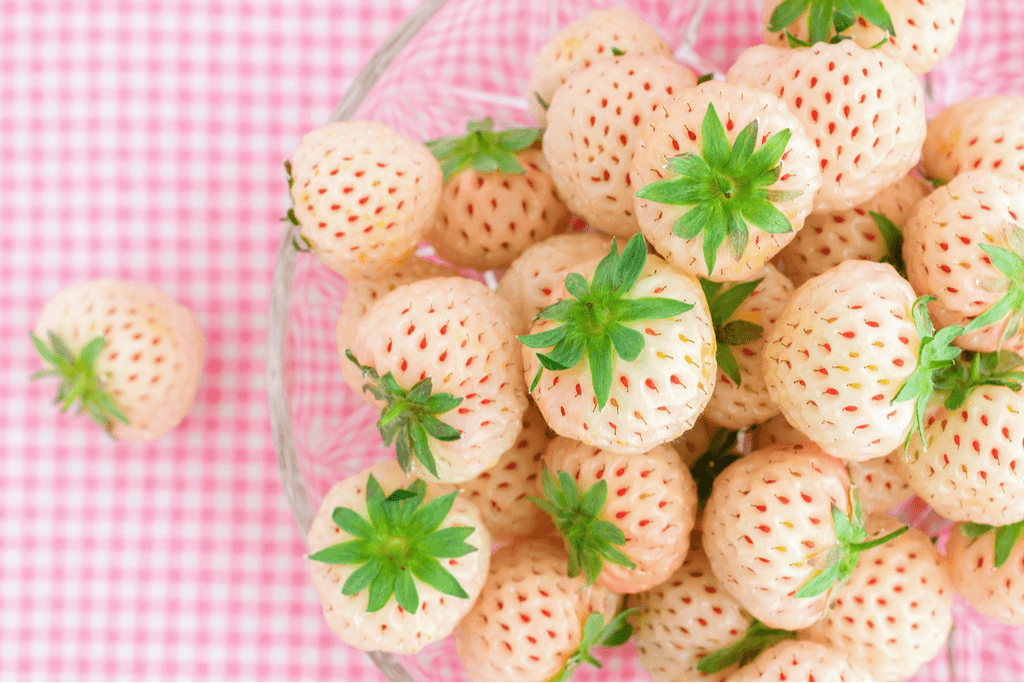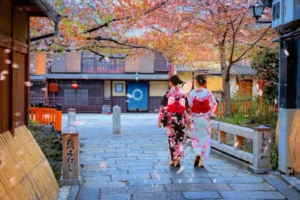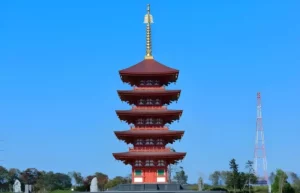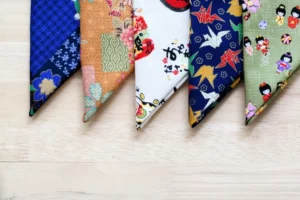The white strawberry of Japan is unique. One of the most popular fruits eaten in Japan is strawberries. Many restaurants and cafes have unique dessert options that use various strawberries grown throughout Japan.
There are numerous strawberry varieties, such as Amaou, Akihime, Toyonoka, and Sagahonoka. Recently white strawberries have also become popular in Japan. Let’s explore the white strawberry and why it is so popular!
Table of Contents
ToggleOverview
The white strawberry in Japan is Shiroi Houseki (White Jewel) because the strawberry’s skin color is white, and the seeds are usually red. When cut in half, the inside of the strawberry is also white! White strawberries are also generally bigger and weigh more than typical red strawberries. On average, a white strawberry can weigh up to 1.76 ounces!
Despite the white color of the skin, the strawberries are not unripe! Unlike red strawberries, the whiter the skin, the more ripe and ready to eat they are. The mature white strawberry can be as sweet or sweeter as the red strawberry. Many people say the strawberries’ most significant difference (outside the color) is the smell!
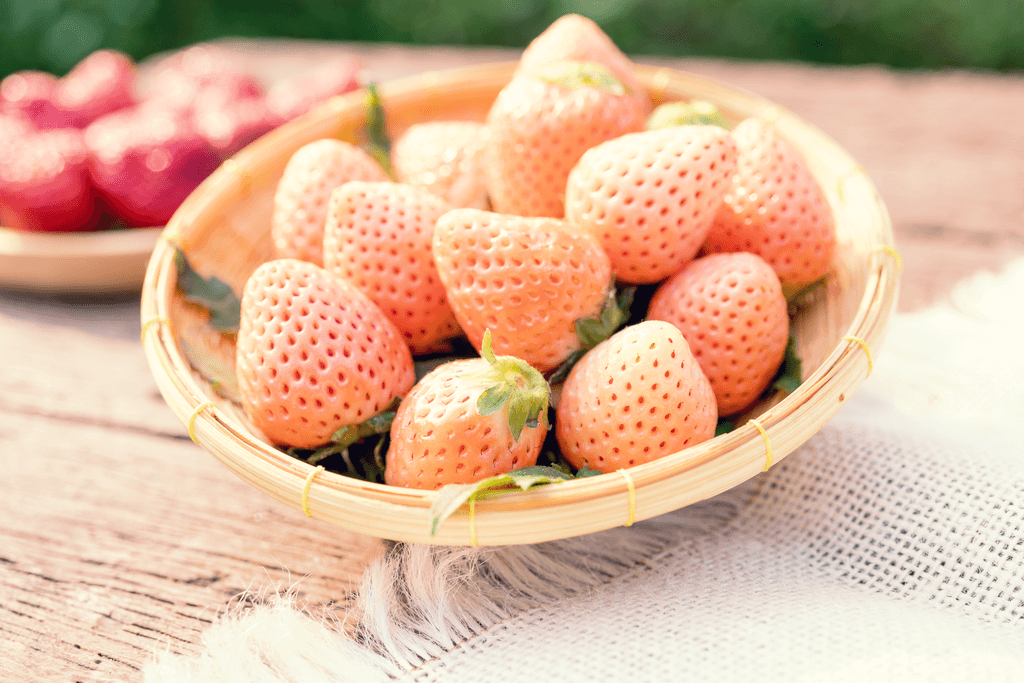
White strawberries have a more mellow smell than pears and peaches. The whiter the strawberry, it is harder to cultivate since blemishes and scratches are more noticeable on the fruit. Farmers usually only sell 10% of what they own. The “unsuccessful” strawberries become strawberry jam, syrups, and ice cream!
Why are they so famous?
Japan’s most famous white strawberry is from Saga Prefecture at Teshima Farm in Karatsu City. Teshima Farm is renowned for being the farm that first sold this variety of strawberries. The strawberries were the result of extensive testing and cross-breeding before finally going on sale in 2012. Mr. Teshima, the head farmer of Teshima farm, says white strawberries are hard to grow, but he enjoys creating unimaginable smells and flavors.
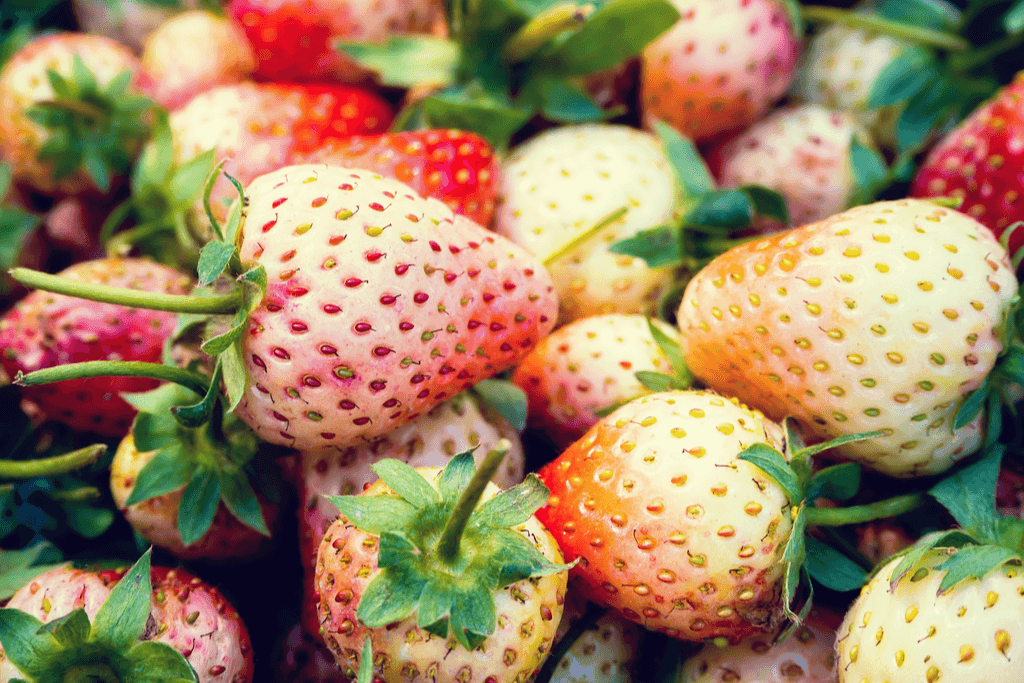
Many people consider white strawberries a luxury, and they are not usually available in supermarkets. However, one strawberry can cost up to $10 – making a standard pack of 10 strawberries costing around $100 or more!
Packs of white strawberries are a good idea for a gift due to their high price. Especially in winter, people give these strawberries as a Christmas or Valentine’s day gift.
Can’t you get enough of luxury Japanese food like white strawberries? Try Sakuraco! Sakuraco sends traditional Japanese snacks, teas, and tableware from local Japanese makers right to your door!
Different types of White Strawberries
As the white strawberry in Japan got more popular, farmers became interested in cultivating different types. Some famous white strawberries are Hatsukoi no Kaori, Awayuki, Milky Berry, Pearl Princess, Angel Strawberry, and Tokun.
Hatsukoi no Kaori
Hatsukoi no Kaori, or “First love’s scent,” comes from Yamanashi Prefecture. The strawberry skin is a pale pink color that resembles how one blushes when one sees their love. The flavor is sweet, and it has a unique aroma.
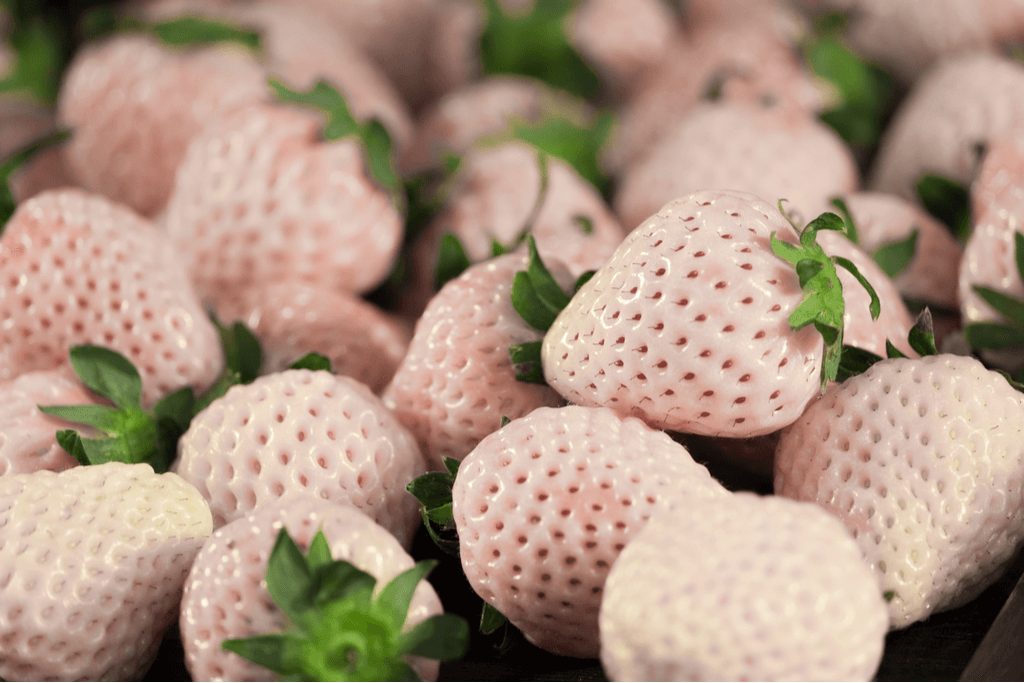
Awayuki
Japan’s pink Awayuki strawberries come from Kagoshima Prefecture. They are a variety of Sagahonoka strawberries. Their skin can also be pale orange.
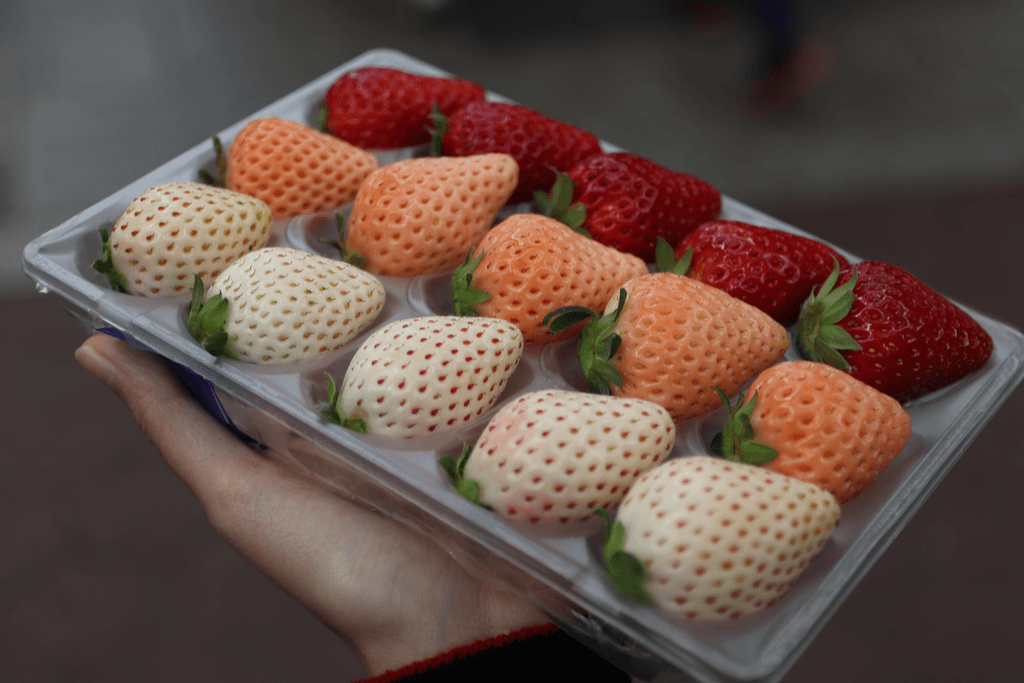
Angel Strawberry
Angel Strawberry, or Angel Eight (AE), comes from Saga Prefecture. The skin of the strawberry is pinkish-white, and the flavor is said to be a mix of sweetness and sourness. This strawberry is also available to be grown at home.
Compared to other white strawberries, Awayuki is well-known for its sweetness rather than its fragrance. Though it was initially a product from western Japan, recently strawberries in Kanto have grown too.
Tokun
Tokun is a strawberry that comes from Hokkaido. Unlike other white strawberries, the color of the skin is closer to red or pink than white. Its scent is very fruity and smells similar to a peach! Many say it tastes like sweet caramel.
Milky Berry
Milky Berry white strawberries come from Tochigi Prefecture. The Hatsukoi no Kaori white strawberry inspired the Milky Berry strawberry. It is a relatively new white strawberry cultivar from as recent as 2020! People called it “milky” because it is white, just like milk, and has a mellow texture and sweetness.
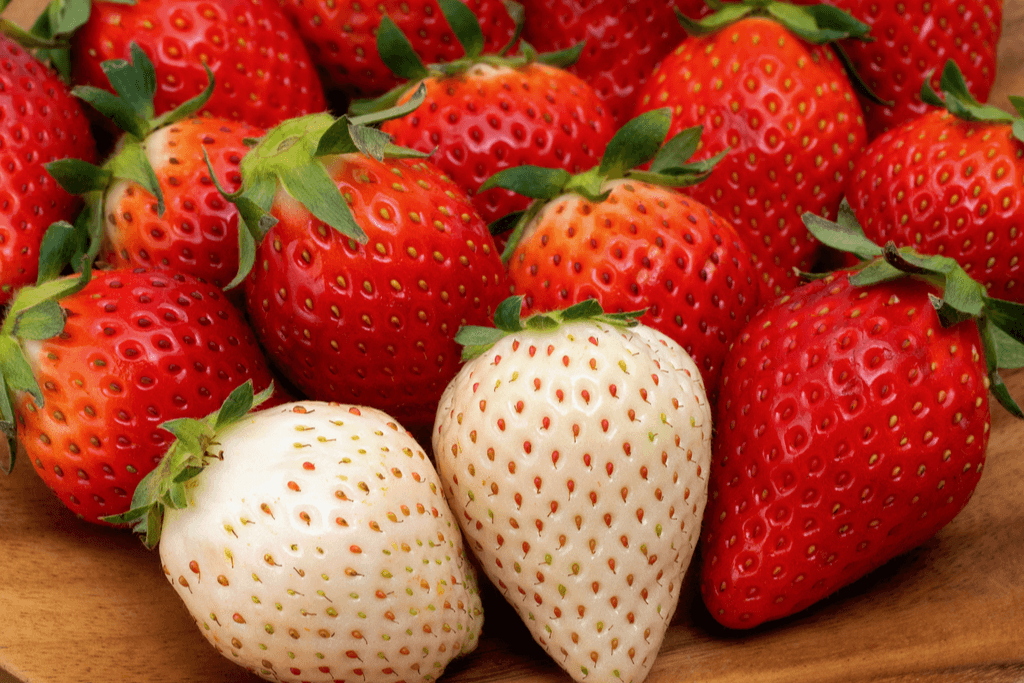
Pearl Princess
Pearl Princess or Shinjuhime comes from Nara Prefecture. It resulted from several efforts to improve various types of white strawberries. It has a tropical aroma, and its sweet flavor resembles that of ripe white or yellow peaches in syrup.
If you come to Japan, you can see some of these strawberries in unique desserts such as cakes and parfaits. Some cafes and restaurants also have strawberry courses where you can try up to 20 different strawberries! Which white strawberry from Japan do you want to try the most? Let us know in the comments below!


